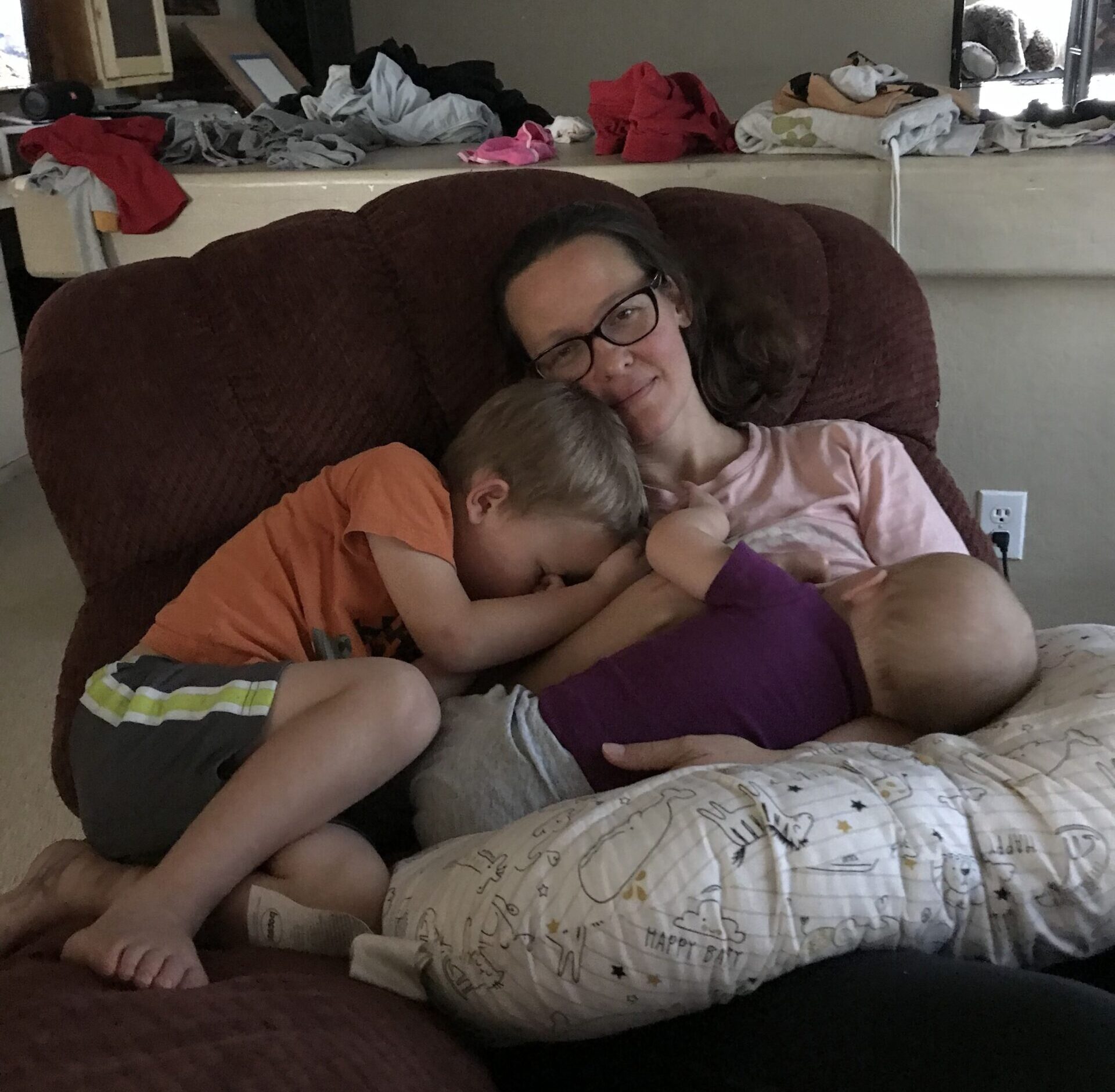After breastfeeding 8 babies with only a few struggles, I was devastated when it wasn’t working with our baby #9. I struggled to keep nursing him, and I studied to figure out what was wrong. The pediatrician didn’t know why it wasn’t working. After a few months, through the help of a friend, I figured out that our baby couldn’t latch on because he had a tied lip, something I had never heard of. Even after we got the lip-tie fixed, he was never able to exclusively breastfeed. But that didn’t stop me from giving it the best effort I could, and I nursed him with supplementing for over a year.
Looking back on my own determination during that hard time, I realized that I have a real passion for breastfeeding. That led me to earning a certificate as a breastfeeding specialist. Now I can help other moms reach their breastfeeding goals.
The first 48 hours after birth are so important to breastfeeding success. Here are some things you can do to help you get a good start nursing your baby.
Speak up to your health care providers to let them know that you’ll be breastfeeding and don’t need formula.
Breastfeed your baby early and often.
Baby should be breastfed within the first hour of life, and about every 2 hours except one longer stretch each day. Another way to think of it is 8-12 feedings per day. They have tiny tummies that empty quickly, and night time is no exception.
For a good breastfeeding position, sit up strait or slightly leaned back with good back support. Bring your baby close with their tummy up against yours. Line up their mouth to be able to open wide and get a deep latch. I highly recommend finding someone with experience or training to show you how.
Watch for your baby’s cues that they’re hungry. This might look like a fist in their mouth, grunting noises, opening their mouth and turning their head, panting, or any other signs of being discontent. If you wait until they’re crying to feed them, it will be much harder to help them latch on.
The safest place for night feedings is in a side-lying position on mom’s bed. The safest place for baby to sleep is in their own bed in parents’ room. For more info on sleep safety visit Strong Families AZ ABCs of Safe Sleep.
If for some reason your baby is given a bottle of breastmilk or formula in the first few days of life, keep telling your body that your milk is needed by either pumping or hand-expressing breastmilk. Also pay attention to the kind of bottle nipple used. The flow of the bottle nipple needs to match your milk flow to reduce nipple confusion.
The first few weeks of breastfeeding can be quite difficult, but if you can stick it out, it can be very sweet and rewarding for you and your baby.

For more on breastfeeding see Why Breastfeed and Marriage Advice.
